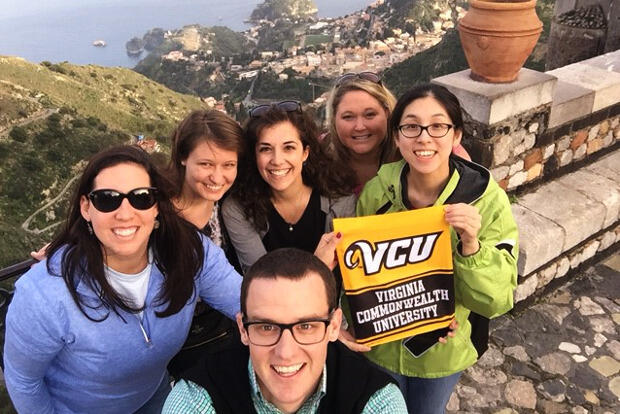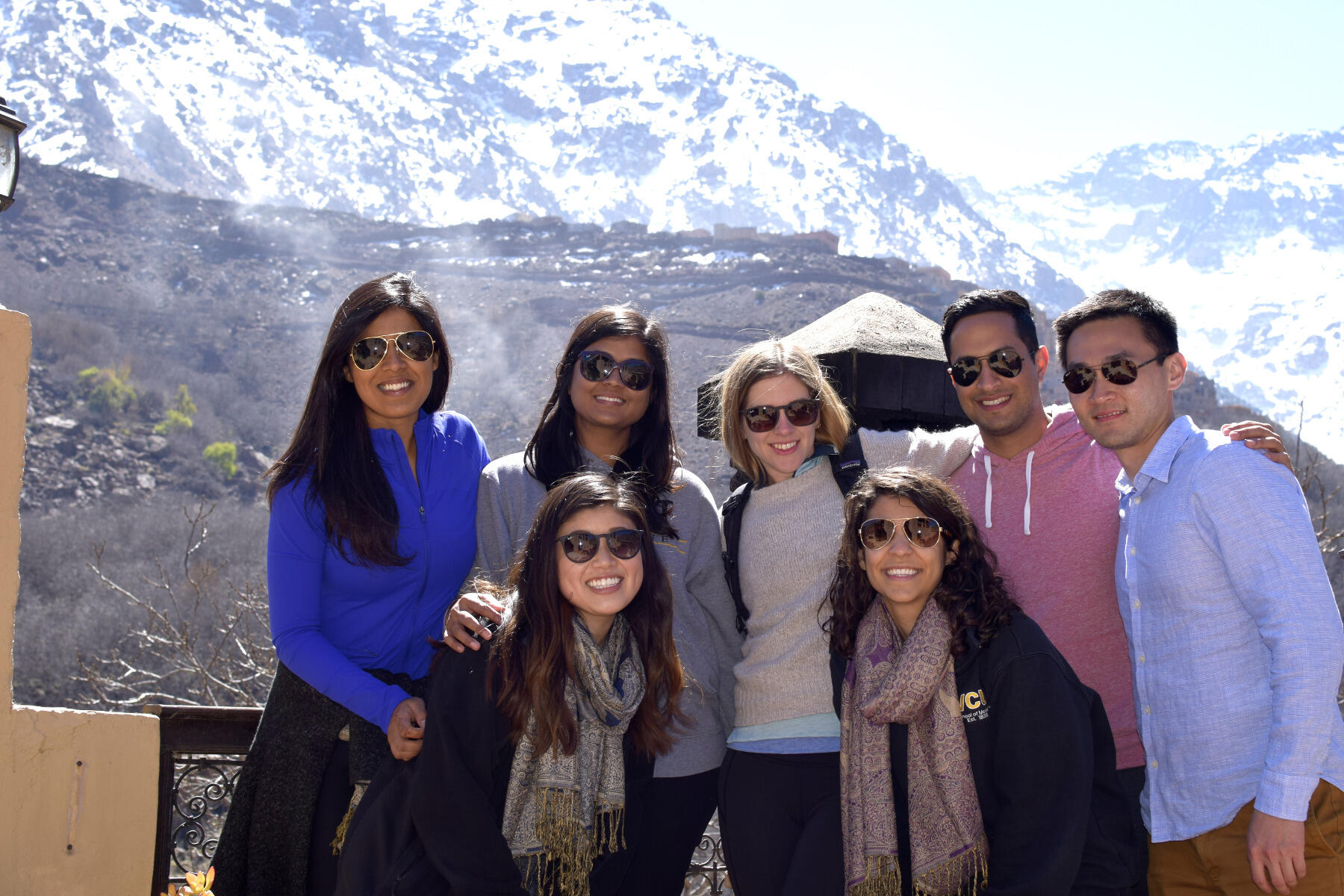
May 6, 2016
Medical students enjoy clinical rotations in Italy and Spain
Share this story
Katie Waybill was awestruck by the pace of life in Messina, Italy.
“It was so much slower,” she said. “It really gave us a chance to feel the culture of the city, to live every moment.”
Waybill was one of six fourth-year medical students to travel to Italy in February as part of a four-week international exchange between the Virginia Commonwealth University School of Medicine and the University of Messina. Another six students later journeyed to Spain as part of an exchange with the University of Cordoba.
This is a great way for our students to see how health care is performed in other parts of the world.
“This is a great way for our students to see how health care is performed in other parts of the world,” said Chris Woleben, M.D., associate dean for student affairs in the School of Medicine, who helps coordinate the exchange. “This experience helps our students become well-rounded in dealing with patients who come from different backgrounds.”
The medical exchange among the three schools began 10 years ago, as part of the International Strategic Partnership Initiative coordinated by the Global Education Office. This year, about 30 students from the School of Medicine expressed interest, with 12 selected through a lottery process. When they applied, they selected the specialty that interested them the most and were matched with physicians to shadow.
“Medical students there don’t get as many hands-on experiences as we do here,” said student Sushmita Gordhandas, who traveled to Spain. “But I still learned a lot. It was interesting to see how different health care is in another country.”
Gordhandas, who will be moving to Seattle for her OB-GYN residency at the University of Washington, rotated in radiology while in Spain. She saw a variety of cases, from a brain tumor to broken bones.
“In the U.S., there’s more of a mindset that your life is your job,” she said. “In Spain, you do your job and go home to your family. You work hard, but family is the priority. That was one difference, but the biggest thing we encountered was the language barrier. That was a little challenging, but it all worked out. We had friends on our side.”
Many of their counterparts who already had rotated on the MCV Campus as part of the exchange were happy to lend a helping hand, and many of the assigned professors spoke English.
“Some of the residents had already been here and were familiar with MCV,” said Waybill, who will stay in Richmond to complete her internal medicine residency. “Their English was really good. They helped us so much.”
For Ellie Balakhanlou, the trip to Cordoba gave her the opportunity to flex her Spanish-speaking muscles.
“It’s so much better when you are learning a language to be immersed in the environment,” she said. “I feel like I left there more competent because I was forced to get out of my comfort zone a little bit and really converse in the language.”

Balakhanlou will stay at the MCV Campus for her residency in physical medicine and rehabilitation. While in Spain, she was part of the physical rehabilitation rotation and worked with cardiac, pulmonary and pediatric patients.
“I got to do some exams and talk with the patients,” she said. “It was great. The doctors introduced us as Americans and all the patients were so welcoming. They joked with me that I got the chance to practice my Spanish with them while they got to practice their English with me. It was a fascinating experience.”
Each group made time for sightseeing. In Italy, for example, the students spent a weekend in Tuscany, visited the Leaning Tower of Pisa and saw Greek ruins in Agrigento.
“It was a clinical rotation for us, but we learned so much outside of that,” said Waybill, who rotated in radiology. She reviewed chest X-rays and saw everything from bowel cancer and congenital heart anomalies to pneumonia. She also had the opportunity to run CT scans on two Vatican mummies. “I am so appreciative for the chance to live in another culture.”
With a growing number of students applying for the exchange, the medical school hopes to expand the program to include more countries in the coming years, participating in exploratory visits to Mexico and Cuba, coordinated by the Global Education Office, this year alone.
“In an ever-increasing globalized world, it’s important to have intercultural experiences,” said Michael Ryan, M.D., assistant dean for clinical medical education. “It makes our students more valuable and better equipped to understand our complex world.”
And become better physicians in the process.
“Health care is different no matter where you go,” Waybill said. “No one system is perfect. But if you can take the strengths from all, it will allow us to have a cohesive relationship with other nations and work toward a stronger health care system for everyone.”
Subscribe for free to the weekly VCU News email newsletter at http://newsletter.news.vcu.edu/ and receive a selection of stories, videos, photos, news clips and event listings in your inbox every Thursday.
Subscribe to VCU News
Subscribe to VCU News at newsletter.vcu.edu and receive a selection of stories, videos, photos, news clips and event listings in your inbox.













